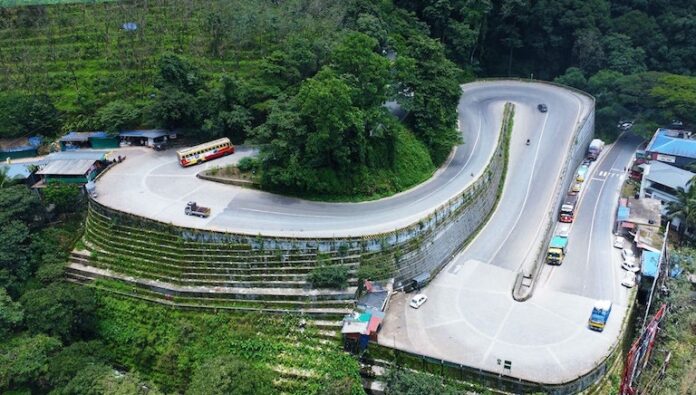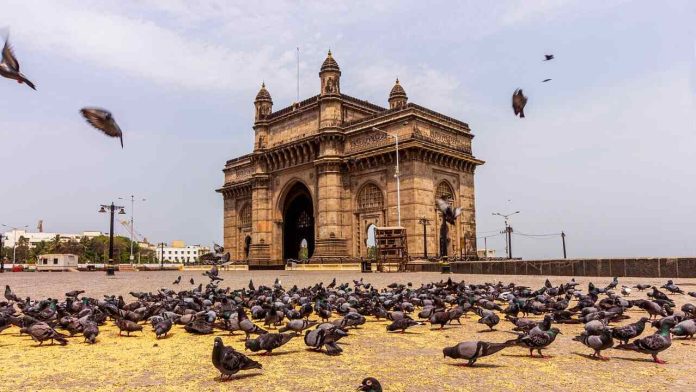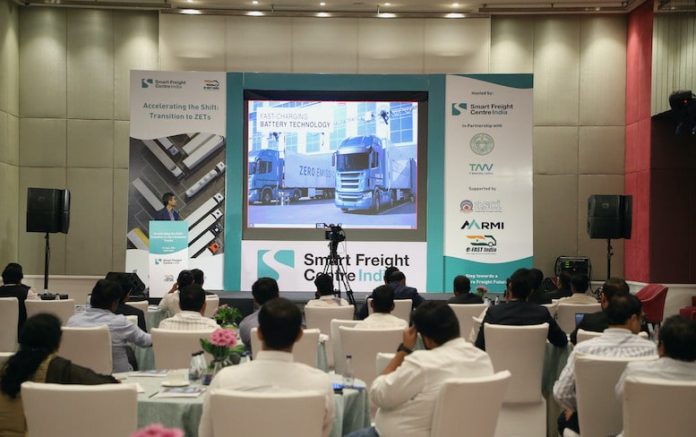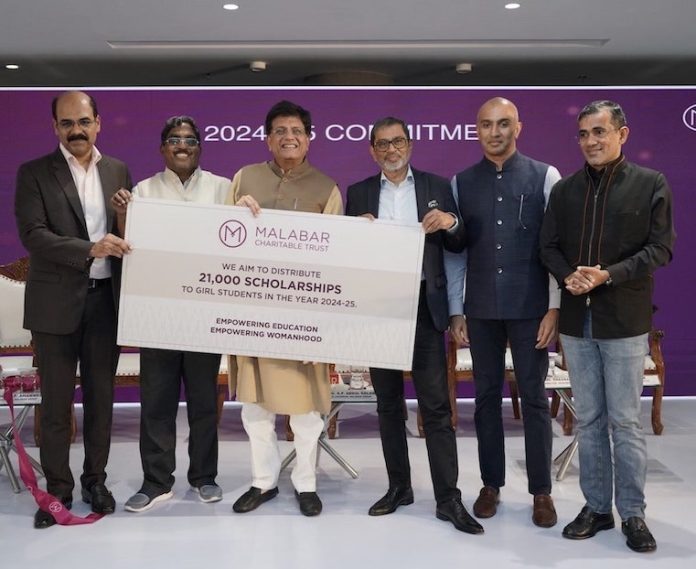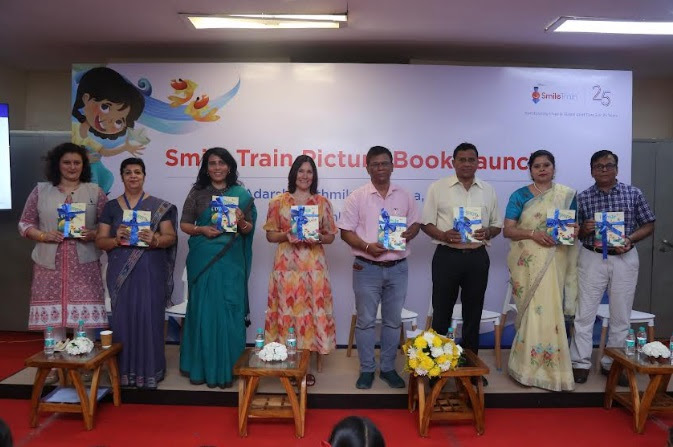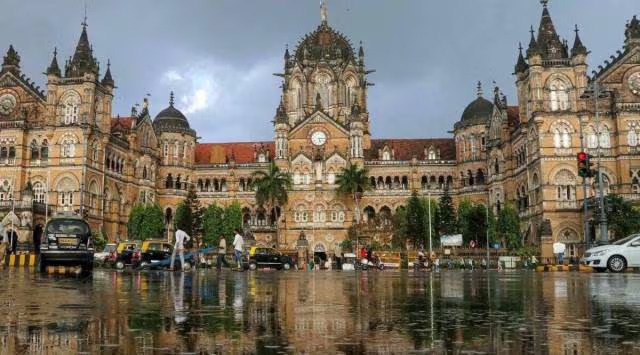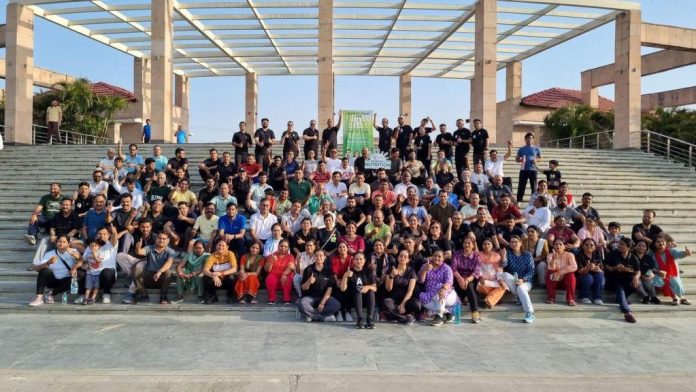Ministry of Tourism launches Incredible India Content Hub and Digital Portal
To celebrate the occasion of World Tourism Day on 27th September this year, the Ministry of Tourism, Government of India has launched the Incredible India Content Hub on the revamped Incredible India digital portal.
The Incredible India Content Hub is a comprehensive digital repository, featuring a rich collection of high-quality images, films, brochures, and newsletters related to tourism in India. This repository is intended for the use of a diverse range of stakeholders, including tour operators, journalists, students, researchers, film makers, authors, influencers, content creators, government officials, and ambassadors.
What to expect from the Content Hub
The Content Hub, which is part of the new Incredible India digital portal intends to make it easy and convenient for travel trade (travel media, tour operators, travel agents) across the globe to access everything they might need on Incredible India at one place, so that they can amplify Incredible India in all their marketing and promotional efforts.
The Content Hub has around 5,000 content assets currently. The content available on the repository is a product of a collaborative effort by multiple organizations, including the Ministry of Tourism, Archaeological Survey of India, Ministry of Culture and others.
The Incredible India Digital Portal is a tourist-centric, one-stop digital solution designed to enhance the travel experience for visitors to India. The revamped portal offers essential information and services to travellers at every stage of their journey, from discovery and research to planning, booking, travelling, and return.
What’s new on the portal
The revamped portal offers a wealth of information on destinations, attractions, crafts, festivals, travel diaries, itineraries, and more, utilizing multimedia content such as videos, images, and digital maps. The platform’s ‘Book Your Travel’ feature provides booking facility for flights, hotels, cabs, buses, and monuments, thereby enhancing accessibility for travellers. Additionally, an AI-powered chatbot functions as a virtual assistant to answer queries and provide real-time information to travellers. Other features include weather information, tour operator details, currency converter, airport information, visa-guide, and more.
Ministry of Tourism will continue to improve and develop the portal to include new features, add additional content through crowdsourcing, and partner with relevant organisations and institutions to make the digital portal a continual source of inspiration for all those who search and seek Incredible India.
Tourist Feedback Mechanism at Airports and Railway Stations
Meanwhile, In a bid to engage and involve citizens in tourism development and growth, Ministry of Tourism is introducing mechanisms at airports and railway stations across the country, for tourists to provide their feedback on their visits to tourist attractions and destinations in India.
Feedback and rating of experiences by is travellers is being done by enabling them to scan a QR code placed at relevant points at airports and railway stations, while spending around 30 seconds to rate their tourist experience and provide any feedback.
This feedback will be real-time and dynamic in nature allowing the Ministry to address issues in a proactive manner in collaboration with various stakeholders. This will also prove to be a rich source of data and insights for tourism development.
Why Is Discussing Corporate Social Responsibility Important
Suppose you are good at making ‘Chole Bhature’. Motivated by your friends and family, you decide to open a small stall in front of Vishwavidyalaya Metro Station, Delhi. The stall starts with a bang and with time, you end up delivering more and more plates per day.
At the end of each day, you are left with some food that you do not want to waste. So you decide to feed the homeless around your stall, free of cost, every night. This act is part of your social responsibility, as a small business owner. From the profit that you made, you also start to conduct a ‘Bhandara’ every month. This, again, is part of your social responsibility.
In a similar fashion, big corporate houses use a certain percentage of their profit to help the society in whatever manner they deem fit. This is called ‘Corporate Social Responsibility’ or CSR.
Defining CSR Better
In simple words, Corporate Social Responsibility is a business initiative, where the company uses a portion of their profit to bring about a positive change in the society.
Operations of a small business do not require a lot of resources. But this is not the case with big multinational corporations, whose activities take up a huge amount of resources from nature as well as the state. Their activities sometimes also end up impacting the environment. This is why CSR is important. A company’s social responsibility holds them accountable for the impact they created on the environment and the people, while making profit.
Not many countries have made Corporate Social Responsibility mandatory for companies operating within their borders. However, according to the National CSR Portal, India is the only country which has regulated and mandated CSR under an act. Section 135 of The Companies Act 2013 provides that companies, with certain levels of profit, must mandatorily contribute towards CSR activities. The board of directors of every company, on which this act applies, ensures an expenditure of at least 2% of their last three financial years’ average net profit on CSR activities.
It is true that CSR initiatives provide a lot of benefits to the corporate houses. It is a tool to improve their public image, which also gets them media attention, enhances their brand value in front of investors and stakeholders and helps them stand out.
But largely speaking, CSR is all about the people. It is about you and me. So how is CSR linked to every citizen of the country and why should one be aware of it at all?
CSR for Every Indian Citizen
Accountability Check: Being aware of the CSR initiatives of corporate houses operating in your city is important. It is only then that every citizen can hold companies responsible for any negative impact they caused.
Take the example of PepsiCo. The company’s beverage and snack units in India used approximately 6.98 billion liters of water, according to The Economic Times. When the residents in Kerala and Tamil Nadu got to know about the same, they started boycotting PepsiCo, Coca-Cola, and other foreign soft drink brands. Soon the company had to add 19.7 billion liters of water through various water saving programs, as part of their CSR initiative. In this way, the people of Kerala could hold the company accountable and could eventually get to use water.
Economic redistribution: CSR initiatives are highly crucial in countries like India. According to the World Inequality Report 2022, the top 10% of the population hold approximately 60% of the total national income of India. This is the effect of a lot of factors combined, like faulty land reforms, inaccurate policy formation, wealth concentration by a certain caste, high population, lack of education, gender inequality and technological deprivation.
For the country to be in the state of harmony and peace, inequality needs to be reduced. This is where CSR becomes important. It helps channel resources from the wealthy to those in need.
Highlighting the Importance of Goodwill: Act done by corporate houses with the intention of goodwill sets a good example. When an MNC takes up an initiative to educate young children, provide healthcare to senior citizens or conduct a plantation drive, it attracts the eyeballs of many. People feel hopeful and positive about the world they live in. It also creates an environment of general goodwill and compassion amongst all the members of the society.
Gandhi Philosophy of Trusteeship: The practice of Corporate Social Responsibility also finds its roots in pre-independence India. Mahatma Gandhi’s idea of trusteeship was that big industrialists cannot acquire the wealth they have without help from workers and the poorer section of the society. And so, Gandhi urged big business holders to share some share of their wealth with the marginalized. He suggested that this can be done by opening up trusts that can work for basic needs of education, health, sanitation, etc.
In this way, CSR has historically been part of Indian philosophy. And every individual should make sure that these ideas stay alive, in the present and even in the future.
Greening the Retail Experience: How malls can embrace sustainability through various innovative initiatives
In today’s business landscape, sustainability has become a necessity rather than a choice. Shopping malls, which operate on a large scale and partner with a diverse range of brands in fashion, food, entertainment, and more, must embrace eco-friendly practices to remain relevant and responsible. As consumers grow increasingly conscious of their environmental impact, it is essential for malls to adopt sustainable or green supply chain management practices to minimize their environmental footprint. A strong commitment to Environmental, Social, and Governance (ESG) principles is essential, with initiatives that actively promote sustainability and contribute to a greener future.
Eco-friendly, recycled, locally sourced materials
One of the most impactful ways to pursue sustainability is by using eco-friendly, recycled, renewable, or locally sourced materials in construction and ongoing infrastructure development. Energy efficiency is another crucial aspect of sustainability. By sourcing energy from renewable resources such as solar, wind, or hydroelectric power, malls can lower their environmental impact and reduce costs. Additionally, optimizing lighting and air conditioning systems by designing spaces to maximize natural light and implementing energy-efficient cooling solutions further enhances sustainability efforts.
Partnering with suppliers who use electric vehicles or other low-emission transportation methods is key to reducing carbon emissions across the supply chain.
Reducing strain on landfills
In metropolitan areas where waste management is a significant challenge, initiatives such as cleaning a waterway are vital in reducing the strain on landfills. To further support sustainability, malls should integrate organic waste composting systems to convert food waste into compost, effectively minimizing landfill usage.
Malls today are embracing eco-friendly flea markets that feature organic, locally grown products like staples, vegetables, and jams, all sustainably produced. These markets encourage consumers to make environmentally conscious choices. Additionally, the inclusion of botanical gardens within malls highlights their commitment to sustainability while providing shoppers with a unique, eco-friendly experience.
Water conservation
Water conservation is another area where malls can make a substantial impact. Malls can install water-saving devices in restrooms and food courts and implement rainwater harvesting systems for landscaping and other non-potable uses, significantly reducing water consumption. Encouraging tenants to adopt sustainable practices can improve a mall’s overall operations.
By adopting these practices, shopping malls can not only reduce their environmental impact but also enhance their reputation and appeal to eco-conscious customers and tenants. Moreover, government bodies increasingly offer rebates and privileges to businesses that implement sustainable practices, making sustainability both an ethical and financially viable choice.
Views of the author are personal and do not necessarily represent the website’s views.
 Santush Pandde is the Chief Operating Officer (COO) of Growel’s 101 Mall at Grauer & Weil (India) Limited. With a Diploma in Hotel Management and a PGDBA from Welingkar Institute of Management, he also holds certifications in Sustainable Investing from Harvard Business School and is a Certified Retail Real Estate Professional (CRRP). Under his leadership, Growel’s 101 has thrived, blending innovative retail solutions with community engagement. Known for his dynamic leadership, Santush drives operational efficiency, profitability, and environmental responsibility.
Santush Pandde is the Chief Operating Officer (COO) of Growel’s 101 Mall at Grauer & Weil (India) Limited. With a Diploma in Hotel Management and a PGDBA from Welingkar Institute of Management, he also holds certifications in Sustainable Investing from Harvard Business School and is a Certified Retail Real Estate Professional (CRRP). Under his leadership, Growel’s 101 has thrived, blending innovative retail solutions with community engagement. Known for his dynamic leadership, Santush drives operational efficiency, profitability, and environmental responsibility.
CSR: Smart Freight Centre India conducted a ZET Enablement Workshop to accelerate adoption of ZETs in India
Smart Freight Centre (SFC) India in partnership with the Government of Telangana, hosted a pioneering ZET Enablement Workshop today. It brought together key stakeholders to discuss the medium and heavy-duty truck (MHDT) freight sector, the challenges in Zero Emission Trucks (ZETs) adoption, and insights from across the ecosystem. The focus was on addressing challenges and opportunities in the adoption of ZETs.
The event featured presentations, group working sessions, promoting knowledge-sharing and collaboration to accelerate ZET adoption and advance sustainable freight in India. The workshop aimed to create a platform for knowledge-sharing and collaboration, accelerating the adoption of ZETs and making sustainable freight a reality in India.
Vijay Jaiswal, Director, SFC India, set the tone with a welcome address, emphasizing the need for a cohesive strategy to overcome challenges in the electric freight truck transition. They highlighted the crucial role of policy offices, industry partners, and energy sectors in building a roadmap, supported by 17 knowledge partners under the e-FAST platform, to scale zero-emission truck pilots in Telangana and beyond.
Mr. Jayesh Ranjan, IAS, Special Chief Secretary to Government of Telangana, State Government Official, in his special address emphasized “India’s freight sector is at a critical juncture, where sustainability and economic competitiveness must go hand in hand. The adoption of ZETs represents a significant step towards decarbonizing the medium and heavy-duty freight sector, aligning with our national climate goals. While there are challenges in scaling ZET adoption, platforms like the ZET Enablement Workshop and the efforts of SFC India create a vital collaborative environment for knowledge-sharing, addressing barriers, and driving actionable solutions.”
Sri Jayesh Ranjan, also emphasized on Telangana’s ambitious goal of achieving net-zero emissions sooner rather than later, acknowledging the challenge of requiring interventions across multiple sectors. Electric mobility, especially in the trucking sector, will play a significant role in this transition. Telangana will focus on knowledge-based industries like AI and advanced technologies, with rapid developments expected within the next 2-3 years. Electric trucks, along with upcoming ZET heavy vehicle pilots, mobility valley initiatives, and green skill partnerships, will be key components of the state’s strategy. Efforts to improve charging infrastructure and implement a new MSME policy were also highlighted.
Besides, Mr. Gopalakrishnan VC, Director Automotive, Government of Telangana outlined their EV policy, including incentives for manufacturing, innovation, and skilling under the Telangana Mobility Valley. Their ZET accelerators are paving the way for pilot projects and scaling efforts.
Mr. Vijay Jaiswal, Director, SFC, in his address said “I would like to thank Mr. Jayesh Ranjan and Mr. Gopalakrishnan VC for gracing the event and providing us with such insightful thoughts. In India, the adoption of ZETs is rapidly gaining momentum, fueled by growing commitments to sustainability and clear economic advantages. Indian Freight Buyers and Logistics Service Providers (LSPs) are increasingly integrating ZETs into their operations, highlighted by the demand for 7,750 e-trucks at the CEM Goa event in July 2023 under NITI Aayog’s e-FAST program.”
Further, Mr. Amartya Awasthi from ASCI highlighted the potential for electrifying mine haul trucks, which consume significant fuel, and shared their support for Smart Freight Centre India in exploring pathways for scaling electric trucks.
Mr. Suganth KS from RMI India, in his presentation, mentioned the Zero Emission Trucking Accelerator, initiated by Telangana Mobility Valley with RMI’s technical support. It aims to deploy and increase the adoption of Zero Emission Trucks (ZETs) in Telangana. The accelerator has received applications from OEMs, fleet operators, and infrastructure providers, and is set to deploy ZET pilots in key sectors like cement, mining, and FMCG.
Other key highlights
– Participants engaged in interactive sessions and a roundtable discussion on e-trucks in Telangana, exploring strategies for overcoming adoption barriers and identifying opportunities for collaboration.
– The event also featured group working sessions designed to tackle the pains, gains, and actionable steps necessary for ZET adoption.
– The workshop aimed to catalyze the shift toward sustainable freight in India, creating a platform for accelerated ZET adoption and enabling long-term environmental and economic benefits.
To support ZET adoption, the ZET Enablement Workshop Series has been launched, fostering collaboration among industry leaders, government representatives, and key stakeholders. Organized by the SFC India, these workshops explore sustainable logistics solutions and address barriers to ZET adoption. Previous consultations in Chennai, Mumbai, and Delhi included diverse stakeholders such as OEMs, think tanks, policymakers, LSPs, and shippers.
Disclaimer: This media release is auto-generated. The CSR Journal is not responsible for the content.
Children’s book series launched to support Cleft Awareness, Empathy and Inclusion
New Delhi, India: Smile Train, the world’s largest cleft-focused NGO, proudly announced the launch of its first picture book today, titled, I Smile Like A Song, which will be included in a five-part series. The unveiling took place at Atal Adarsh Prathmik Vidyalaya on R K Ashram Road in New Delhi.
Through vibrant visual storytelling, the book aims to raise awareness about clefts, fostering empathy, kindness, and inclusion amongst primary school children. This first book, written by award winning children’s book writer Mamta Nainy and illustrated by Aniruddha Mukherjee, inspires young readers to embrace the message that every smile is beautiful, promoting equality and encouraging acceptance of differences from an early age.
The launch event saw the presence of distinguished guests, including Mr. Pramod Kumar, Academic Consultant, NDMC, Ms. Rama Joshi, Principal, Atal Adarsh Prathmik Vidyalaya, Smile Train’s President and CEO, Susannah Schaefer, and Senior Vice President and Regional Director for Asia, Mamta Carroll.
Talking about the launch Mr. Pramod Kumar, Academic Consultant, NDMC shared, “A lot has been done to inspiring inclusion at the school level and yet there are issues which need special attention. Through this initiative, we believe that our students will not only learn to accept and appreciate differences but will also contribute to building a more compassionate society. We see immense value in introducing such storytelling tools early on, as they are vital in shaping the perspectives of future generations and promoting equality for all.”
“Smile Train’s efforts in introducing stories that highlight differences in a relatable and sensitive way are commendable. As educators, we should also explore the possibilities of integrating such subjects into our school programs and activities to ensure that empathy and acceptance are deeply ingrained in the values we teach our children,” Dr. Vinay Kumar Singh, Professor and Head, Department of Education of Groups with Special Needs, National Council of Educational Research and Training.
Susannah Schaefer, Smile Train’s President and Chief Executive Officer shared, “By fostering empathy through storytelling, Smile Train looks to build a more inclusive and compassionate society for cleft-affected children. I am thrilled to see the first book launched today at Atal Adarsh Prathmik School, RK Ashram Marg, New Delhi and thank the Department of Education, New Delhi Municipal Council for their support to this special project.”
Mamta Carroll, Smile Train’s Senior Vice President and Regional Director for Asia reflecting on the journey that led to the book series said, “During our awareness workshops in schools across Delhi, we recognized the pressing need for early education about clefts and other facial differences. This inspired us to create a book series as a medium to promote understanding and acceptance. This first-of-its-kind initiative is a significant milestone. Our long term plans include wider distribution of the book to primary schools across India.”
Every year, more than 35,000 children are born with clefts in India. In addition to facing challenges with eating, breathing, and speaking, many are stigmatized due to a lack of awareness about cleft conditions. Smile Train’s picture book series aims to address this gap by fostering empathy and inclusion from an early age, helping to reshape perceptions and build a culture of acceptance.
Disclaimer: This media release is auto-generated. The CSR Journal is not responsible for the content.
Government to Install Tourist Feedback Mechanism at Airports and Railway Stations across the Country
In a bid to engage and involve citizens in tourism development and growth, Ministry of Tourism is introducing mechanisms at airports and railway stations across the country, for tourists to provide their feedback on their visits to tourist attractions and destinations in India.
Feedback and rating of experiences by is travellers is being done by enabling them to scan a QR code placed at relevant points at airports and railway stations, while spending around 30 seconds to rate their tourist experience and provide any feedback.
This feedback will be real-time and dynamic in nature allowing the Ministry to address issues in a proactive manner in collaboration with various stakeholders. This will also prove to be a rich source of data and insights for tourism development.
By installing the QR code provided by Ministry of Tourism, Ministry of Civil Aviation, Government of India and Ministry of Railways, Government of India are collaborating with Ministry of Tourism for setting up of these mechanisms at airports and railway stations across the country, so that over time, they become a reliable source of insight and information for tourism policy and strategy.
Disclaimer: This media release is auto-generated. The CSR Journal is not responsible for the content.
National Nutrition Month celebrated by advocating ‘Nutritious Diet for Everyone’ for A Healthier India
Mumbai, India: Reaffirming its commitment to help transform lives for a healthier nation, Amway India, a leading company supporting health and wellbeing needs, celebrated National Nutrition Month with targeted interventions across the country. Aligning with the theme of the year “Nutritious Diets for Everyone,” the initiative focused on building understanding around the importance of diet that meets the daily nutrition needs.
These interventions reinforced the company’s vision of building a healthier India by prioritizing healthspan. By promoting balanced diets, Morning Nutrition for starting the day right, need-based nutrition recommendations backed by quality products, and healthy cooking tips, the month-long initiatives aimed to equip distributors with the knowledge and tools to help themselves and their customers make informed dietary choices and build lasting, health-promoting habits.
Amway India engaged 30,000 distributors and their customers nationwide through targeted nutrition-led interventions during National Nutrition Month.
Speaking on this, Rajneesh Chopra, Managing Director, Amway India, stated, “As nutritional challenges continue to rise, it is imperative to make balanced nutrition accessible and practical for all. A recent report from the Indian Council for Medical Research (ICMR) highlighted that unhealthy diets contribute to 56.4% of the disease burden in India . With growing lifestyle diseases and evolving consumer needs, prioritizing nutrition has become crucial for individuals seeking optimal well-being. We at Amway India take immense pride in our philosophy of putting ‘health first,’ which guides everything we do. Our National Nutrition Month interventions were designed to empower communities with the knowledge to make healthier choices, embodying the belief that health is a fundamental principle.
We also emphasise the importance of a balanced Morning Nutrition ritual, coupled with need-based supplementation, as it plays a pivotal role in setting the tone for the day and supporting overall wellbeing. Our approach to health is holistic. Through these efforts, we are reinforcing our commitment to transforming millions of lives by prioritizing healthspan vs lifespan”.
Through the National Nutrition Month initiatives, Amway India organized daily educational workshops for its distributors across regions—East, West, North, and South—each focusing on nutritious, balanced diets and the importance of Morning Nutrition. These workshops covered a range of topics, including the benefits of protein intake, healthy dietary habits, and recipes for nutritious meals using Nutrilite All Plant Protein to meet your daily protein goals and Amway Queen Cookware.
The North region hosted a series of YouTube Live sessions under the theme “Eating Smart, Right From the Start!” that were focused on topics such as Healthy Eating & Balanced Diet, Nutrition for All Life Stages and Healthy Beauty Through Nutrition. The sessions aimed to educate participants on the importance of balanced Morning Nutrition with Nutrilite All Plant Protein and Nutrilite Fibre, healthy morning routines, and using nutrition to enhance overall wellness and beauty.
From workshops on the importance of protein and fiber to morning nutrition rituals and healthy cooking, the interventions throughout the month were pivotal in promoting sustainable well-being across the country. By continually offering practical, need-based nutrition solutions, Amway reaffirms its unwavering dedication to improving the health and wellbeing of communities for a healthier India.
Disclaimer: This media release is auto-generated. The CSR Journal is not responsible for the content.
Centre plants 80 Crore Seedlings under ‘Ek Ped Maa Ke Naam’ campaign
On the occasion of World Environment Day, Prime Minister Narendra Modi launched the ‘Ek Ped Maa Ke Naam’ campaign, a unique initiative combining environmental responsibility with a heartfelt tribute to mothers. This campaign was inaugurated on June 5, 2024, with the planting of a Peepal tree by the Prime Minister at Buddha Jayanti Park in Delhi. Prime Minister Narendra Modi emphasized the importance of collective efforts to improve the environment and spoke of India’s strides in increasing forest cover over the past decade. This campaign, he said, aligns with the nation’s quest for sustainable development!
The essence of ‘Ek Ped Maa Ke Naam’ is a symbolic gesture—planting a tree in the name of one’s mother. This simple act serves a dual purpose: honoring the role of mothers in nurturing life and contributing to the health of the planet. Trees are life-sustaining, and just like a mother, they provide sustenance, protection, and a future for the next generation. Through this initiative, participants can create a lasting memory, planting a tree as a living tribute to their mothers, while also addressing the pressing need for environmental preservation.
80 Crore Seedlings Planted
The Ministry of Environment, Forest, and Climate Change successfully met its ambitious goal of planting 80 crore seedlings under the ‘Ek Ped Maa Ke Naam’ campaign by September 2024. The target was achieved on 25th September 2024, 5 days ahead of deadline. This achievement was made possible through collaborative efforts from government agencies, local communities, and various stakeholders.
World Record of planting over 5 lakh saplings
On 22nd September 2024, the 128 Infantry Battalion and Ecological Task Force of the Territorial Army, a unit under the Ministry of Environment, Forest, and Climate Change (MoEF&CC), achieved a remarkable feat by planting over 5 lakh saplings in just one hour. This monumental achievement, carried out under the “Special Plantation Drive” in Jaisalmer, was part of the Prime Minister’s campaign, “Ek Ped Maa Ke Naam”, and the Territorial Army’s outreach initiative, “Bhagidari & Zimmedari”, aimed at promoting ecological restoration and raising environmental awareness among local communities.
The Territorial Army unit’s efforts were recognized by the World Book of Records, London, with several provisional world records, including:
• Most saplings planted by a team in one hour.
• Most saplings planted by a team of women in one hour.
• Largest number of people planting saplings simultaneously at a single venue.
The presence of representatives from the World Book of Records ensured that the plantation was meticulously verified and certified, and the Ecological Task Force received the provisional award for this achievement. This plantation drive exemplifies the motto, “Those who protect the trees are protected,” reinforcing the importance of environmental stewardship for the well-being of future generations.
Collective Actions Across Ministries
In line with Prime Minister Modi’s call, various ministries have embraced the campaign enthusiastically. Each ministry and department has made substantial contributions to this initiative, demonstrating a collective commitment towards sustainability, green cover enhancement, and fostering public engagement Ministry of Defence announced a nationwide initiative to plant 15 lakh trees on Independence Day, August 15, 2024, under the banner of this campaign. This effort was carried out through the Indian Armed Forces, Defence PSUs, NCC, and other associated bodies, contributing to a greener and healthier India.
The Ministry of Coal, under the leadership of Secretary Shri V.L. Kantha Rao, organized a plantation drive at Millennium Park, as part of their ongoing environmental sustainability efforts. Coal and Lignite PSUs have planted saplings over the years, contributing significantly to reducing carbon footprints in mining areas.
In addition, the Ministry of Information and Broadcasting has launched its own plantation drive, planting about 7,000 trees across urban and rural locations nationwide. This campaign, ran from mid-August, focused to expedite tree planting efforts, especially during the ‘Swachhata Hi Seva’ campaign from September 17 to October 1, 2024.
Union Minister of State (Independent Charge) for Ayush and Minister of State for Health & Family Welfare, Shri Prataprao Jadhav, actively participated by planting an Amla sapling in memory of his mother. The Minister highlighted the importance of this campaign as a way for individuals to express their love for both their mothers and Mother Earth.
Minister of State for Agriculture and Farmers’ Welfare, Shri Bhagirath Choudhary, engaged in the ‘Ek Ped Maa Ke Naam’ campaign through a virtual event at the National Institute for Agricultural Extension Management, Hyderabad. Additionally, the Department of Agriculture and Farmers’ Welfare contributed through extensive tree-planting efforts, involving its various offices and subordinate bodies.
Minister of State for Ministry of Corporate Affairs and Ministry of Road Transport and Highways, Shri Harsh Malhotra, participated in a plantation drive at Kota House, New Delhi, as part of both the ‘Ek Ped Maa Ke Naam’ and Swachhata Hi Seva 2024 campaigns. The ministry’s officers also undertook mass cleanliness drives to support the government’s broader vision of environmental protection and Swachh Bharat.
Inspired by the campaign, the Ministry of Skill Development and Entrepreneurship (MSDE) led by Shri Jayant Chaudhary, undertook widespread plantation activities across its institutions. Over 11,778 trees were planted at Pradhan Mantri Kaushal Kendras (PMKKs), National Institutes for Entrepreneurship and Small Business Development (NIESBUD), Industrial Training Institutes (ITIs), National Skill Training Institutes (NSTIs), and Jan Shikshan Sansthans (JSS). The ministry’s efforts focused on integrating environmental consciousness with skill development, fostering a sense of community and sustainability among students, trainers, and local populations.
The Swachhata Hi Seva 2024 campaign, led by the Department of Drinking Water & Sanitation and the Ministry of Housing & Urban Affairs, emphasized cleanliness and green cover enhancement. Planting trees as part of this nationwide drive has bolstered the government’s commitment to a cleaner, greener India. The participation of government agencies like the Indian Army, Indian Air Force, Border Security Force, Sankalp Taru NGO, and local communities, further extended the reach and impact of the campaign.
Technological Boost: ‘Ek Ped Maa Ke Naam’ App
To support this initiative, Union Minister for Communications and Development of North Eastern Region (DoNER), Shri Jyotiraditya Scindia, launched the ‘Ek Ped Maa Ke Naam’ app. This innovative platform allows users to plant and dedicate a tree in honor of their mothers, with features such as easy image uploads, location tagging, and carbon credit tracking. The app even enables users to monitor the growth of their tree over time, offering a personal way to stay engaged in environmental protection.
The app’s user-friendly interface encourages individuals to become active participants in environmental conservation. Users can plant a tree, upload its image, and share their efforts on social media, inspiring others to join this meaningful cause.
A Vision for a Greener Future
‘Ek Ped Maa Ke Naam’ is a movement that reflects India’s commitment to a sustainable and environmentally conscious future. By combining respect for mothers with a call to action for environmental protection, this initiative offers a way for citizens to contribute directly to creating a greener planet.
The success of this campaign lies in its simplicity and emotional appeal, encouraging people across the nation to plant a tree as a tribute to their mothers. In doing so, they honor the nurturing power of both nature and motherhood, ensuring that future generations inherit a healthier and more sustainable world.
Disclaimer: This media release is auto-generated. The CSR Journal is not responsible for the content.

